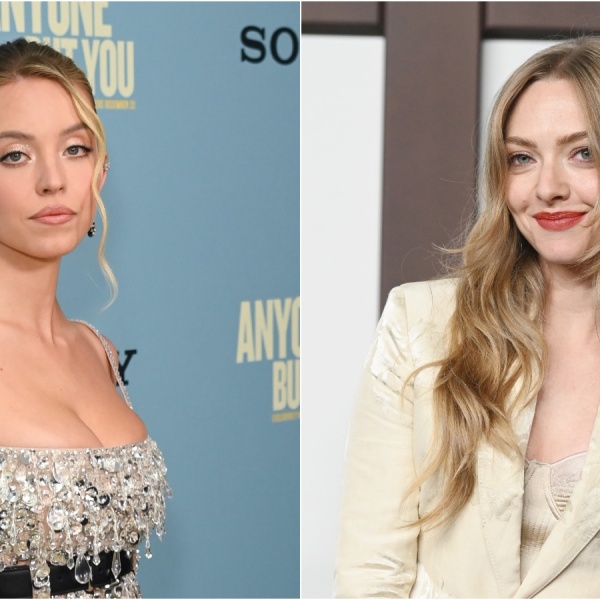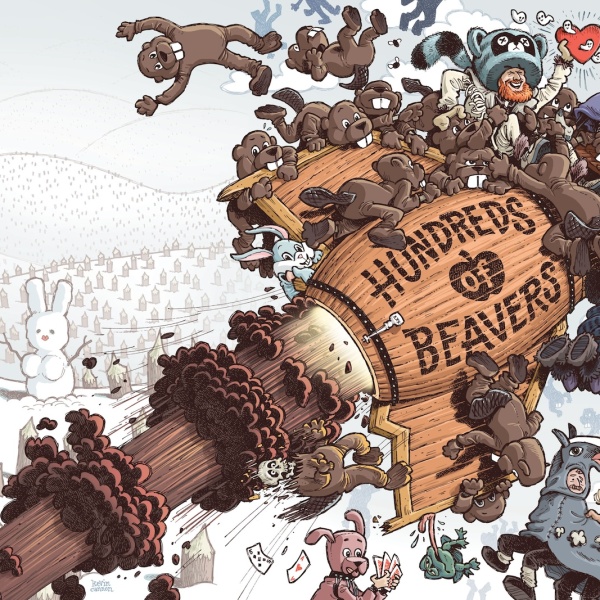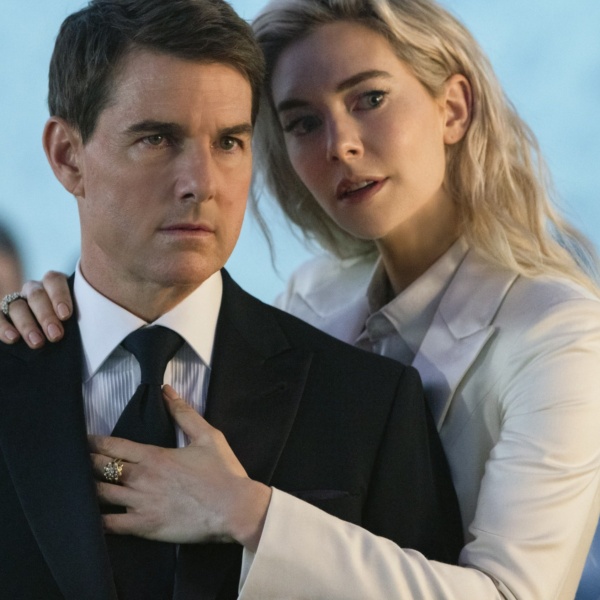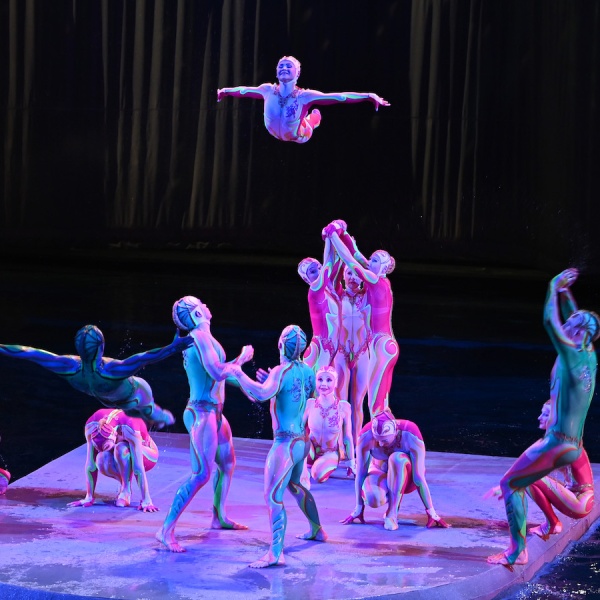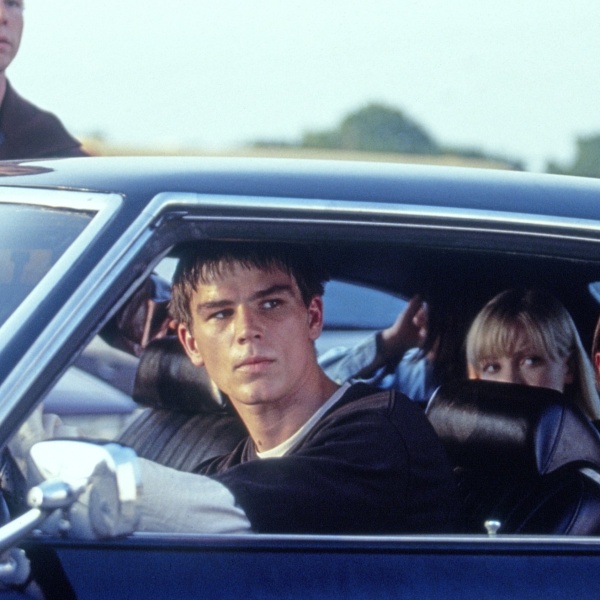
Fueled by an Ennio Morricone-style score by Calexico, “The Guard” is essentially a classic Western set in Connemara, Ireland. If “The Guard” is “High Noon,” then that makes star Brendan Gleeson the (much fouler) equivalent of Gary Cooper. Gleefully provoking with comments like, “Why don’t you fuck off to America with your Barack O’Fucking Bama?” Gleeson’s Gerry Boyle may say–and do–villainous things, but he’s the good-hearted soul of this black comedy from director John Michael McDonagh, brother of Martin McDonagh of “In Bruges” fame. Surrounded by corruption, Sergeant Boyle is forced to pair up with a visiting FBI agent (Don Cheadle) to investigate murder and drug trafficking in his small Galway Country town.
While Gleeson’s character may be an abrasive, button-pushing jerk, we found the actor himself to be anything but as we caught up with him recently to chat about “The Guard” and also take the opportunity to inquire about his gestating directorial debut “At Swim Two-Birds.” An adaptation of Flann O’Brien‘s complex, metafictional book (that gained pop culture awareness thanks to “Lost“), he’s lined up a fantastic cast that includes Michael Fassbender, Gabriel Byrne, Colin Farrell and Cillian Murphy to help tell the tale that he hopes to shoot next spring. But until then, “The Guard” is definitely worth your time, an acidic take on the buddy-cop formula with as unlikely a pair of partners you’re ever likely to meet. The film opens tomorrow in select cities — check out our conversation with Gleeson below.

The Playlist: So what drew you to “The Guard”?
Brendan Gleeson: The script. I read the script. I came to the end, and I said, “I’m going to do that.” And then eight months later, we were on set. It happened really fast. Really quick. From the first time I was talking to John [Michael McDonagh]. Well, the script came, and it was good. And then I heard Don [Cheadle] was doing it, and that’s even better. Let’s do it now. There was no denying a script like that or a character like that really. The only thing you hope then is 1) that it’ll get made, and then 2) that the kind of relationships that you build up will be in the post. It’s quite a confrontational part. You’d hate for anyone to take it the wrong way.
How did it feel to be saying these incredibly un-P.C. but hilarious things?
It’s extraordinarily liberating when you don’t really care. The point is, if I thought he meant about half of what he’s saying when he’s saying those things, but it’s the last thing in his head. All he wants to do is get up somebody’s nose. He doesn’t care what he says to anybody. He’s a very bored man. He watches a lot of films, and he reads a lot of books, and not an awful lot happens, so he’s just dying for something to happen. So he kinda up scuffles everything and sees where all the plates land. So when you don’t care in that way–it’s unusual to have a cop who doesn’t care about these things. It’s usually criminals who get those kind of lines. From that point of view, it was very fun.
How did you approach playing a character who’s so morally complex?
That’s a very interesting way of putting it. Quite simply really. I think I understood him pretty much in the beginning. In that country, no problem, I would’ve met these guys. There are people like that. Not maybe quite like that, but there are people who would kind of do that. So I had no problem crouching and making the jump. I understand the whole provocative thing. It’s quite common at home, people who kinda just keep twisting their buttons and seeing what comes off or see if it ruffles you at all. It just seems to be a kinda way of carrying on. So all of that was quite easy, and then it was gratifying to see the relationships, for example with [a policeman’s] widow, or his mother or whoever, that they bore out the fact that you had a suspicion from the very beginning that he’s not as bad as the press he’s giving himself. So once that was kinda in place, it was just a joy then, you just have fun with it.
Did the success of “In Bruges” influence your decision to take on “The Guard”?
It was, although people took a while to cop on. It had to go the rounds a few times before people began to get it as well. I hope this one doesn’t have to go through the same hoops, but it’s opened hugely in Ireland, so I have a certain sense it won’t happen that way. It seemed to have garnered a lot of good press, so I’m hoping people can get it from the beginning. But the decision to do it was really based on what I was reading. You couldn’t deny it. You’d be an idiot. No actor would turn it down. It’s as simple as that. No actor in his right mind would turn it down. You couldn’t do it. It was the kind of role that you could hope for for a long time.
I think the voices between the two [McDonagh] brothers are different. Obviously, they came out of the same house, so there’s a certain amount of shared wit, but for the most part, the sensibilities aside, they’re just slightly different. There’s a different take on the way the world is. So the world you create, within their work, they’re two very separate entities. The way I’m saying it to people is that when I try to imagine say Jerry Boyle in Bruges, it doesn’t really happen there usually. You’d imagine they’d fit seamlessly, but they wouldn’t really. They’re two very different kind of places, and even the fact that Bruges and Connemara are so unalike and both are kind of characters within the films. There’s a different echo all the time from the way the two of them approach it. They’re funny to sit and listen to each other, accusing each other of robbing each other’s lines and things like that. It’d be interesting if they ever got together like the Coen Brothers or something. That’d be a sight to see. I’d do that just to see how it worked. Not particularly to see how it came out, but to see how it worked. They’re great, the two of them.
So you’re about to make your directorial debut with “At Swim Two-Birds”. What made you want to take on that project?
Well, I had no interest in doing anything if it meant I wasn’t going to make a difference, to be honest. I directed a couple of plays and things like that before, it was usually my own things. I think fundamentally I’m an actor, but I do know how to read a script and how to organize things, but I wouldn’t have put this amount of work into something that I didn’t think I could make a difference with. When the rights came up for it, I spoke to John Boorman about directing it…I was looking around the place about who would do it, and in the end, John told me, “Look, I don’t know what to do with it. You seem to know what to do with it. Just go and do it.” I always said that that would be the only reason I would direct something is if I felt that from my particular proprietorial view of it–and everybody’s is different–I wanted to keep it intact. I wanted to be in charge of it. So that’s the reason for it. It’s a phenomenal book. And I think now the script’s gone into a place where it’s no longer just my version of the book. It’s kinda my version, but it’s something else as well. So I kinda feel good that it’s my own project now, so I don’t see that anyone else could take control of it. I think it’s either going to happen and I do it, or it doesn’t happen, basically. It looks like it’s going to happen…. At this point I’ve been fretting about it to the extent that I don’t fret it anymore, I don’t sweat it at all anymore. I know that I’ll know what to do once we get out there. And it looks like this spring is going to be when it’s going to happen.
So financing is in order?
It’s looking good, but I don’t believe anything now, anything ever. I can tell you as long as the day is long, “Oh definitely, it’s going to happen,” and all that, but until I’m actually there, I don’t believe it. But at the momentum it’s happening, I can feel it. It’s all looking good.
How have you approached the complex narrative in the book?
I’m going to advise you to read [the book]. When you come to pieces that you have to go on a third time to understand what the paragraph meant, don’t. Just bash through it. It’s really an accumulation of everything, and it starts to make sense. And then every time you read it after that, you find more and more and more and more. It’s one of those books: it operates on three separate levels. There will be three separate worlds in the film. It’ll be a bit like “The Wizard of Oz” in the sense that the real world will inhabit the imaginary world. It’s complex, but in the end, it’s just about a kid in college who stays too long in bed. And doesn’t really know where to put himself in the world and finds that his imagination kind of takes him away. And so that’s really at the basis of it, but it’s a lot of fun.
How many times have you read the book?
I can’t even imagine. [I’ve done] something like 14 drafts of the script. But I’ve left it aside now. I don’t really go at it anymore because as I say, it’s become a different thing. I think at some point, it has to move on. You can be fettered by the book as much as liberated by it. I was initially liberated by it, and now I just kind of want to leave because I know that there are kind of other aspects that are peculiar to the film as a film.
You also got “Albert Nobbs” coming up, what’s your role in the film?
Basically, I’m the doctor in a hotel, and I’ve had to abscond from Belfast after an interlude with two women: one a wife, and one not a wife. So I’m kind of floating about the place, basically trying to drink myself to death or just drink myself into oblivion, kind of escaping. Glenn Close is playing Albert Nobbs, who was discovered to have been a woman at the very end of a life lived as a man. So there are a lot of people who are kind of in this mad hotel, taking refuge. I only did about two weeks on it, but it was great. A whole bunch of fantastic actors. A lot of estrogen floating about, which is unusual on a film set. It’s usually testosterone. Certainly on the sets that I get on to. I’ll be fascinated to see how it turns out.
“The Guard” opens in select theaters on July 29th.



